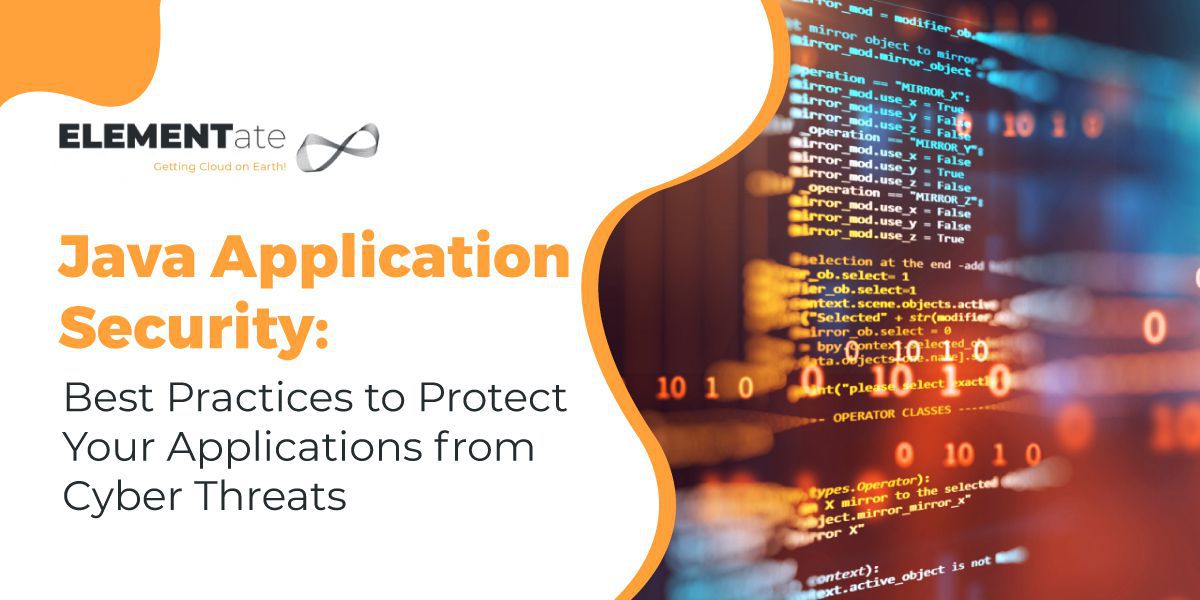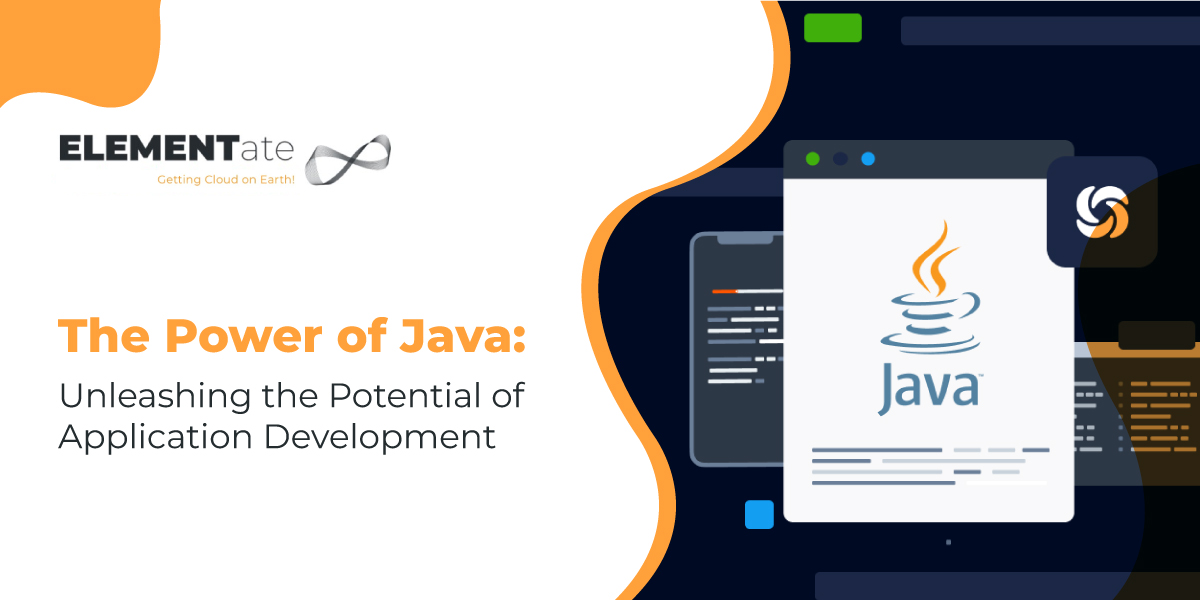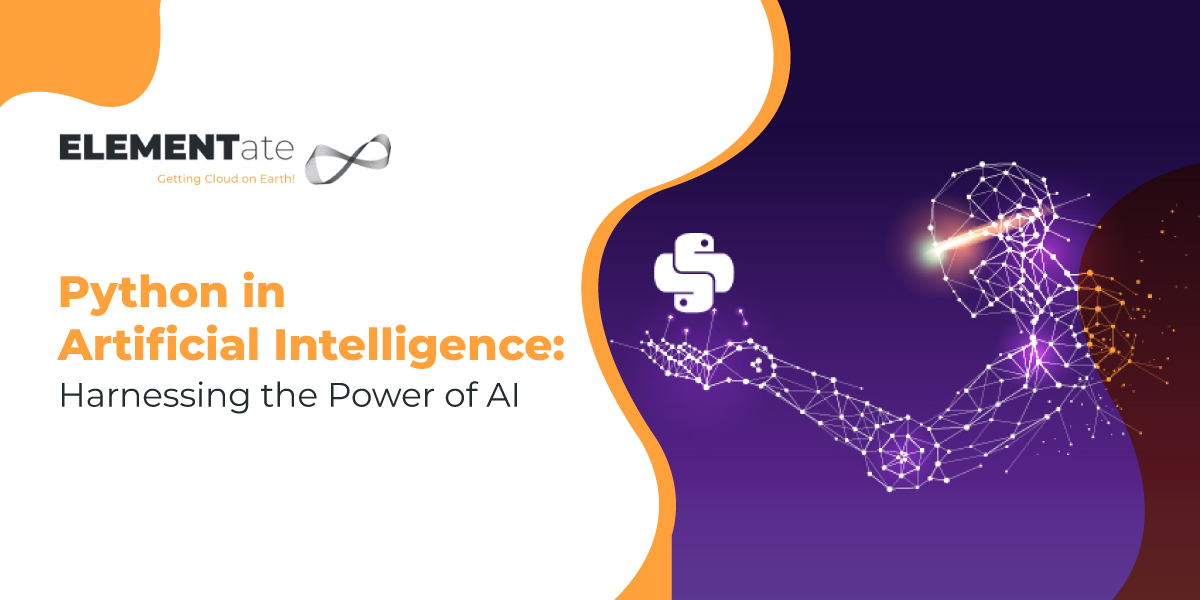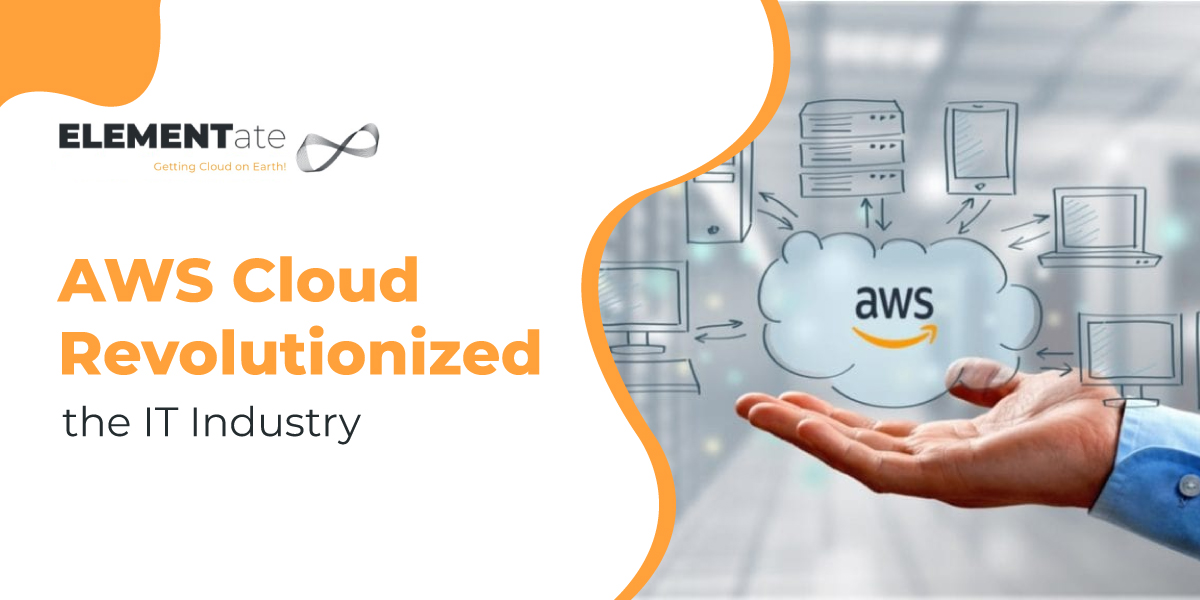Blog Detail
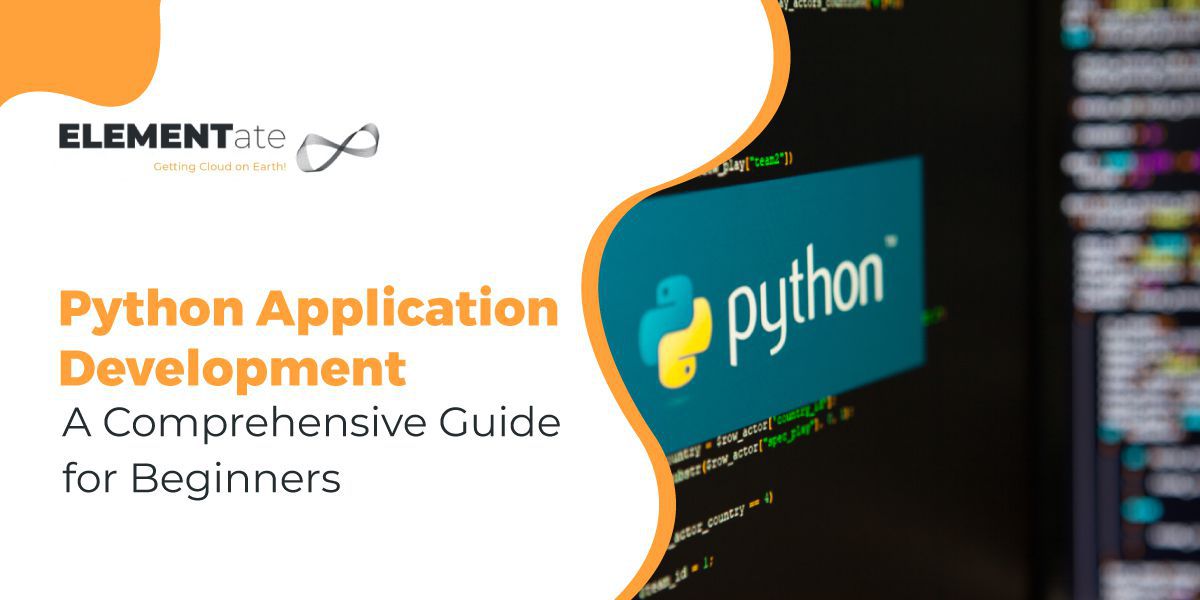
- 27 Jun, 2023
Python Application Development: A Comprehensive Guide for Beginners
Python is a versatile and widely-used programming language known for its simplicity, readability, and extensive range of applications. Developed by Guido van Rossum in the late 1980s, Python has gained immense popularity and has become one of the top choices for software development across various domains. ELEMENTate, an excellent Python development company in India, leverages the power of Python to deliver high-quality solutions for businesses worldwide.
Python's many advantages make it a desirable language for programmers of all skill levels. Its usability is a major selling point. Python's straightforward syntax and logical design make it a pleasure to write, read, as well as study. Because of its ease of use, developers can put their attention where it belongs: on issue-solving, rather than parsing the language's syntax.
Moreover, Python boasts a vast standard library that provides a wide range of pre-built modules and functions. These modules cover a broad spectrum of functionalities, including data manipulation, networking, web development, and more. This extensive library saves developers time and effort, allowing them to build robust applications efficiently.
Another advantage of Python is its strong community support. The Python community is vibrant and active, constantly contributing to the language's growth. This support is evident in the availability of numerous third-party libraries and frameworks, such as Django, Flask, and NumPy, which enhance Python's capabilities and make it suitable for various development needs.
ELEMENTate, being an excellent Python development company in India, capitalizes on these features to offer exceptional services for Python software development in India. With a team of highly skilled Python developers, they provide comprehensive solutions tailored to meet the unique requirements of their clients. Whether it is web development, data analysis, machine learning, or automation, their expertise in Python ensures efficient and scalable solutions.
Companies looking to hire Python developers in India can rely on ELEMENTate's talent pool. Their experienced professionals possess in-depth knowledge of Python, along with expertise in other relevant technologies, enabling them to deliver cutting-edge solutions. ELEMENTate's developers stay updated with the latest trends and advancements in Python, ensuring that their clients receive modern and future-proof applications.
Python application development in India has witnessed significant growth due to the language's versatility and the availability of skilled developers. ELEMENTate plays a crucial role in this domain, offering end-to-end Python application development services. From concept ideation to deployment and maintenance, they guide their clients through every step of the development process, ensuring a seamless experience and successful outcomes.
Concepts for Python application development in India:
Whether you are a beginner or an experienced developer, understanding the core concepts of Python is essential for building robust and efficient applications. ELEMENTate, a distinguished Python development company in India, leverages these core concepts to deliver top-notch Python software development services tailored to the unique requirements of businesses.
- Syntax and Variables: Python's syntax is known for its simplicity and readability. It uses indentation to define blocks of code, making it easy to understand the program's structure. Variables in Python are dynamically typed, meaning their data type can change during runtime. This flexibility allows developers to write code quickly and makes Python an ideal choice for rapid prototyping.
- Data Types: Python provides several built-in data types, including integers, floats, strings, lists, tuples, dictionaries, and sets. Understanding these data types is crucial for effective data manipulation and storage. The skilled team of Python developers at ELEMENTate have a deep understanding of these data types and can leverage them to optimize application performance and memory usage.
- Control Flow: Python supports various control flow structures like if-else statements, for and while loops, and switch statements. These structures enable developers to control the flow of execution and make decisions based on certain conditions. ELEMENTate's Python software development in India utilizes these control flow concepts to build robust and interactive applications with smooth user experiences.
- Functions and Modules: Functions play a vital role in modularizing code and promoting reusability. Python allows the creation of user-defined functions, which can be called multiple times throughout the program. Modules are Python files that contain functions, classes, and variables that can be imported into other scripts. The most reliable Python development company in India - ELEMENTate, emphasizes modular programming to enhance code maintainability and scalability.
- File Handling: Python offers built-in functions and modules for file-handling operations, such as reading from and writing to files. This is crucial for applications that require data persistence and interaction with external files. ELEMENTate's expertise in file handling techniques ensures seamless integration of file operations into their applications.
- Exception Handling: Exception handling is essential for gracefully handling errors and exceptions that may occur during the execution of a program. Python provides a robust mechanism for catching and handling exceptions, allowing developers to control the program's behaviour in unexpected situations. ELEMENTate's Python application development in India employs effective exception-handling techniques to ensure application stability and reliability.
- Object-Oriented Programming (OOP): Python supports object-oriented programming principles, including encapsulation, inheritance, and polymorphism. OOP enables developers to organize code into reusable and modular components, promoting code readability and maintainability. ELEMENTate's Python developers are proficient in OOP concepts, leveraging them to build scalable and extensible applications.
Working with Python Libraries and Frameworks:
Python, being a highly versatile programming language, offers a vast ecosystem of libraries and frameworks that enhance its capabilities and simplify application development. Leveraging these libraries and frameworks is crucial for efficient and effective Python software development. ELEMENTate, an excellent Python development company in India, leverages a wide range of Python libraries and frameworks to deliver exceptional services for Python application development in India tailored to the unique needs of businesses.
Libraries:
Python libraries are pre-written code modules that provide specific functionalities, allowing developers to save time and effort by utilizing existing solutions. Some popular Python libraries include:
- NumPy: NumPy is a powerful library for numerical computing and scientific computing. It provides efficient data structures, such as multi-dimensional arrays, and a wide range of mathematical functions, making it ideal for tasks like data analysis, machine learning, and simulations.
- Pandas: Pandas is a library that offers high-performance data manipulation and analysis tools. It provides data structures like DataFrames, which simplify data handling and analysis tasks, making it valuable for working with structured data.
- Requests: The Requests library is widely used for making HTTP requests and interacting with web APIs. It simplifies tasks like sending HTTP GET and POST requests, handling authentication, and processing responses, making it crucial for web application development and data retrieval.
Frameworks:
Python frameworks provide a structured environment for building web applications, APIs, and more. These frameworks offer predefined architectures, components, and functionalities that speed up development and promote code organization. Some popular Python frameworks include:
- Django Django is a robust and full-featured web framework that follows the Model-View-Controller (MVC) architectural pattern. It provides a comprehensive set of tools and features for web development, including URL routing, ORM (Object-Relational Mapping), user authentication, and admin interface, making it suitable for building scalable and secure web applications.
- Flask: Following the Model-View-Template (MVT) design, Flask is a lightweight and adaptable web framework. It focuses on simplicity and extensibility, providing essential features for web development, such as routing, request handling, and template rendering. Flask is often used for building small to medium-sized applications and APIs.
Working with Python libraries and frameworks empowers developers to build applications more efficiently and effectively. ELEMENTate, as a leading company offering exceptional services for Python software development in India , recognizes the significance of these tools and incorporates them into its software development process.
1. GUI Frameworks:
Python offers various GUI frameworks that simplify the development of graphical interfaces. Popular frameworks include:
- Tkinter: Tkinter is the standard GUI toolkit for Python. It provides a set of modules and functions for creating windows, widgets, and handling user events. Tkinter's simplicity makes it ideal for beginners and small-scale applications.
- PyQt: PyQt is a set of Python bindings for the Qt framework. It provides a wide range of GUI components and tools for creating powerful and feature-rich applications. PyQt is known for its flexibility and extensive documentation.
- PySide: PySide is another set of Python bindings for Qt, similar to PyQt. It offers a user-friendly API and supports cross-platform development.
2. Widgets and Event Handling:
GUI applications consist of various widgets such as buttons, labels, text boxes, checkboxes, and more. These widgets allow users to interact with the application. Python GUI frameworks provide classes and functions for creating and manipulating these widgets. Additionally, event handling is essential for responding to user actions, such as button clicks or mouse movements. Python frameworks offer mechanisms for handling events and associating functions with specific events.
3. Layout Management:
Layout management is crucial for organizing and arranging widgets within the application's window. It ensures that the interface is aesthetically pleasing and adapts to different screen sizes and resolutions. Python GUI frameworks provide layout managers that enable developers to create responsive and flexible interfaces.
Businesses can hire skilled Python developers in India from ELEMENTate and can benefit from their extensive experience in Python software development. The team at ELEMENTate follows best practices and industry standards to build robust GUI applications that provide a seamless user experience. They focus on understanding the client's needs and objectives, ensuring that the GUI application aligns perfectly with their requirements.
Web Application Development with Python:
Web application development has become a vital part of businesses across various industries. Python, with its rich ecosystem of libraries and frameworks, offers a powerful platform for building robust and scalable web applications. ELEMENTate, a prominent Python development company in India, offers specialised services for Python software development in India as well as to businesses worldwide.
When it comes to web application development with Python, several key components and concepts should be considered:
- Web Frameworks: Python offers a wide range of web frameworks that simplify the process of building web applications. These frameworks provide predefined structures and functionalities, allowing developers to focus on application logic rather than low-level implementation details.
- Database Integration: Most web applications require database integration for storing and retrieving data. Python offers various database libraries and ORMs (Object-Relational Mapping) that simplify the process of working with databases. SQLAlchemy and Django's built-in ORM are popular choices for database integration in Python web applications. These tools provide an abstraction layer that allows developers to interact with databases using Python code.
- Templating Engines: Templating engines are used to separate the presentation layer from the application's logic. They provide a way to define and render dynamic HTML templates. Python web frameworks often include their own templating engines, such as Django's built-in templating engine and Jinja2, which is commonly used with Flask.
Testing, Debugging, and Deployment:
Testing, debugging, and deployment are crucial phases in the software development lifecycle. These processes ensure that the developed application functions as intended is free of bugs, and is successfully deployed to the target environment.
Testing:
Testing is a critical phase in software development that ensures the application meets the desired functionality, reliability, and performance requirements. Python provides a variety of testing frameworks and libraries that assist in writing and executing tests. The key testing frameworks in Python include:
- PyTest: PyTest is a widely used testing framework that simplifies writing and executing tests. It provides a rich set of features for test discovery, test organization, fixtures, and assertions. PyTest is known for its simplicity and extensibility.
- Unittest: The unittest module is Python's built-in testing framework. It provides a testing framework with features for test discovery, test cases, assertions, and test suites. Unittest follows the xUnit testing pattern and is often used for unit testing.
- Doctest: Doctest is a unique testing framework in Python that enables writing tests in the form of code examples within documentation strings. It allows developers to write tests alongside the code, promoting documentation and test-driven development.
Debugging:
Debugging is the process of identifying and fixing errors or bugs in the application. Python provides several tools and techniques for debugging, making it easier for developers to identify and resolve issues. Some commonly used debugging techniques in Python include:
- Print statements: Developers can use print statements to output variables or debug information at specific points in the code to understand the program's flow and identify issues.
- Logging: Python's built-in logging module allows developers to log messages at different severity levels. By strategically placing log statements, developers can track the program's execution and identify errors or unexpected behaviours
- Debugger: Python's debugger, pdb, enables developers to pause the program's execution, inspect variables, and step through the code line by line. It provides a powerful tool for analyzing and resolving issues.
Deployment:
Deployment involves the process of preparing the application for production and making it available to end-users. Python offers various deployment options, including:
- Virtual Environments: Virtual environments create isolated Python environments that allow developers to manage dependencies and ensure application stability across different environments.
- Package Managers: Python package managers like pip and conda simplify the installation and management of libraries and dependencies required by the application.
- Containerization: Containerization technologies like Docker enable developers to package the application along with its dependencies and configurations, ensuring consistent deployment across different environments.
- Cloud Services: Python can be deployed on cloud platforms like AWS, Azure, or Google Cloud, providing scalable and reliable infrastructure for hosting applications.
Wrapping Up:
For Python application development in India, ELEMENTate has penned this comprehensive guide for beginners looking to explore the vast possibilities of this versatile programming language. With its simplicity, readability, and extensive library ecosystem, Python provides a solid foundation for building a wide range of applications, from command-line tools to web applications and machine-learning algorithms. By understanding core Python concepts, working with libraries and frameworks, and embracing testing, debugging, and deployment practices, beginners can embark on a rewarding journey in Python application development. Whether it's hiring Python developers or seeking the expertise of a Python development company like ELEMENTate, beginners can confidently navigate the world of Python and unlock the potential to create innovative and impactful applications.

